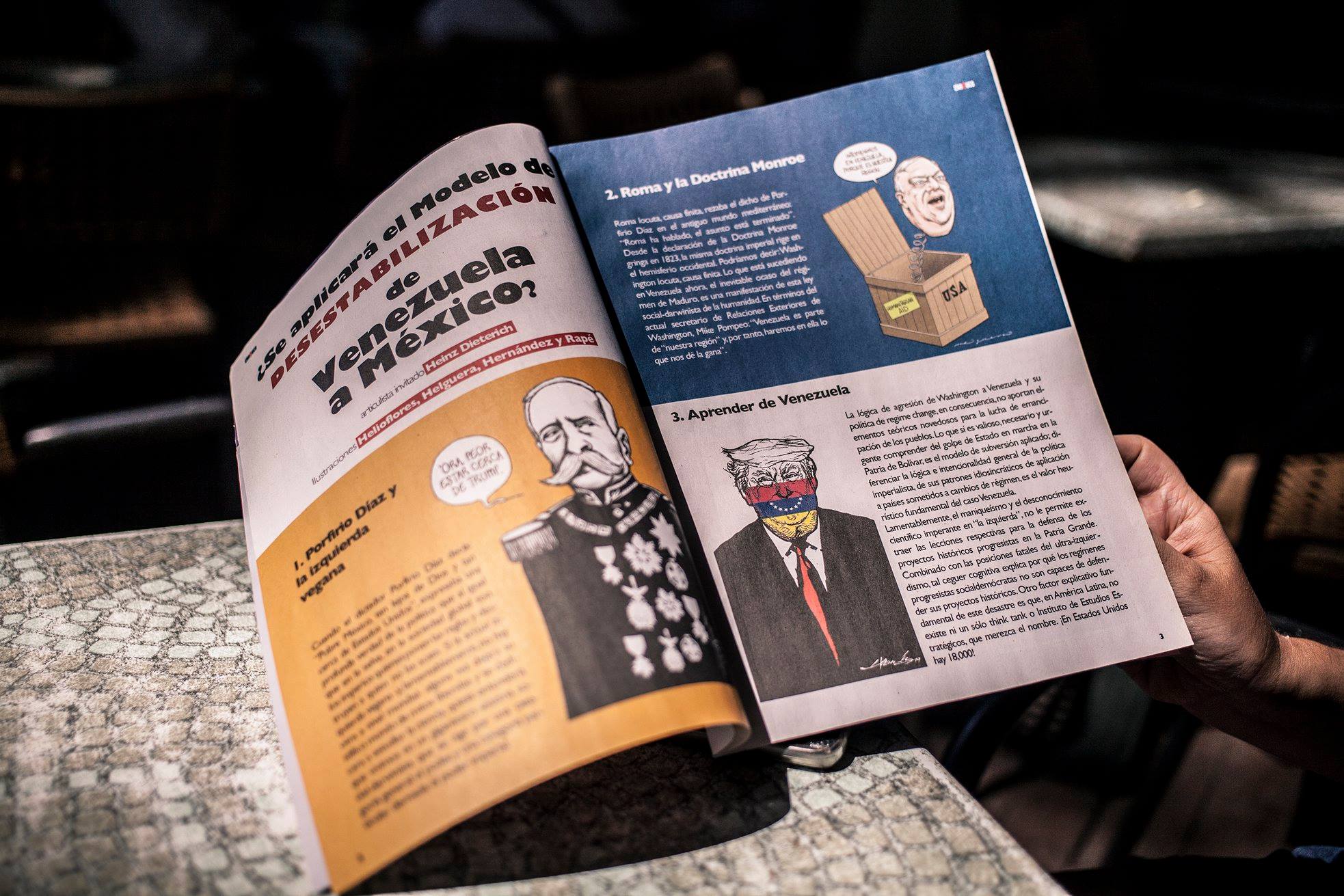This article originally appeared at Labour Outlook.
The alarming rise of the extreme right across the world, exemplified in Latin America by the shock victory of Javier Milei in Argentina, has aroused a combination of anger and despair among progressive observers. There is natural concern that this example may inspire similar right-wing advances elsewhere.
Such concern is extremely understandable but it’s important to realise that not all countries are vulnerable to this type of extremism. Mexico under AMLO (President López Obrador) is a model of how to neutralise the extreme right.
AMLO’s term ends on 30 September 2024 and his successor will take office on 1 October; the presidential and general elections are scheduled for 2 June. The Morena party and its allies in the “Let’s Keep Making History” coalition have chosen their candidate, Claudia Sheinbaum, until recently metro mayor of greater Mexico City and a left-wing woman with a doctorate in environmental science.
The main opposition coalition of the right-wing PAN, the corrupt old governing party PRI and the small former left PRD, also has a woman as candidate, Xóchitl Gálvez. Choosing a woman, and one of partially indigenous background, shows a degree of political astuteness on the part of the opposition, but her PAN allegiance and contradictory statements, as well as infighting among her supporters, have left her trailing by 20 or 30% in the polls.
Mexico under AMLO has a stable economy with low inflation, which has achieved a remarkable recovery from the pandemic. Effective welfare programmes and large-scale public investment in infrastructure, combined with openness to foreign investment, have led to significant appreciation of the peso against the dollar. This is the polar opposite of Argentina’s profound stagflation crisis (prepared years ago by Macri and the IMF) which left it open to the demagogy of free-market fundamentalism.
AMLO has delivered for the first time universal public pensions; incapacity benefit; scholarships (grants) for students at all levels of education; apprenticeships for young people aged 18 to 29; free universal healthcare, a Mexican NHS which is approaching completion; a public Welfare Bank with 2,700 branches to deliver all benefits directly to citizens and provide access to financial services without the speculative practices of private banks; an agroforestry programme, “Sowing Life”, which supports peasant farmers and promotes reforestation and ecological practices on a huge scale; and other benefits which cannot be enumerated here.
In public works the Tren Maya, a 1,500 km railway looping round southeastern Mexico, is now being inaugurated and will provide unprecedented economic, social and cultural benefits to the region’s population. Other public railways are being completed in the southeast, and AMLO is promoting a law to revive passenger rail service (either public or private) in the rest of the country in the future.
Other public works include a much-needed new Mexico City airport, rural roads to service remote communities, irrigation works and solar energy projects, including in the Sonora desert the biggest solar complex in Latin America.
Finally, there is the recovery of energy sovereignty, with public ownership or control of oil, gas and electricity generation through PEMEX (the national oil company) and the CFE (Federal Electricity Commission), and now also public control of lithium. These policies guarantee low energy prices, employment and economic benefits along with a strategy for energy transition (and it is remarkable that AMLO has persuaded the US to accept Mexican energy sovereignty).

This economic and financial tour-de-force has been possible because of a determined and carefully-planned strategy of effective and comprehensive tax collection (without raising tax rates), a serious anti-corruption campaign and the (paradoxical to UK readers) principle of “civic austerity” (austeridad republicana), meaning austerity for public officials and politicians, not working people.
Right-wing invective against leftist ministers and public servants as a privileged “caste” cuts no ice when they live modestly and work tirelessly six or seven days a week, travelling the country to deliver welfare services and inaugurate public works for the benefit of ordinary people.
Most Mexicans are aware that when AMLO took office, he slashed his own presidential salary by over half; that he sold the luxury official airliner and other luxury vehicles; that when he flies (and he does take many domestic flights, since Mexico is a large country) he goes economy class on ordinary commercial airlines; that he stays in modest hotels and eats in regular popular restaurants.
He urged other high-ranking officials to do the same, and got a law passed prohibiting any public servant from earning more than the President; but quite a number of elite officials (Supreme Court judges, Electoral Commissioners and others) had the brass neck to take out lawsuits to allow them to earn two, three or four times as much. They and their conservative pals are rightly despised by most people.
The final key factor discrediting any far-right propaganda is AMLO’s unceasing communication with the people. At first many observers laughed at his daily morning press conferences, two hours or more a day Monday to Friday every week, but then they realised how effective his constant exercise of the right of reply has been.
He rightly insists that there is total freedom of speech in Mexico: no-one, no media of any kind, has been censored in any way. With rare exceptions, the media are overwhelmingly hostile, criticising and often insulting the President; he replies and often denounces their allegations as lies and distortions, but takes no further action.
Right-wing invective against leftist ministers and public servants as a privileged “caste” cuts no ice when they live modestly and work tirelessly six or seven days a week,
Also every weekend he travels around the country, inaugurating public works and engaging in dialogue with local people.
The result is that only committed conservatives believe opposition propaganda. Moreover, since AMLO has insisted (despite the wishes of many of his supporters) that he will not seek re-election, indeed that when his six-year term ends next September 30 he will retire completely from politics, accusations of authoritarianism fall flat.
Of course, AMLO wants his programme of Transformation to continue, and he has done everything possible to persuade the people to participate in Morena and more generally in the Fourth Transformation.
The most encouraging sign of this is that over the past few months, the process of selection of the new leader and presidential candidate has proceeded with real mass participation and enthusiasm for the winner, Claudia Sheinbaum. She was outstanding as Head of Government (metro mayor) of the capital, and is now touring the country unceasingly to meet people and organise “Committees to Defend the Fourth Transformation”.
Morena (or 4T) candidates for other positions (State Governors, members of both Houses of Congress and municipal officers) are now being chosen by the same participatory process.
Everything suggests that Claudia Sheinbaum and the 4T Transformation will triumph next year, and that Mexico (with Brazil, Colombia and other progressive and revolutionary governments in Latin America) will overshadow the neoliberal-come-fascist dystopia of Milei in Argentina, whose people will surely prevail in their struggle.
There is always the possibility that sectors of the Mexican right, and certain sectors in the US, may try to question the legitimacy of the elections, and it is crucial to build international solidarity with Mexico and its Transformation, including here in the UK; but if the victory of Claudia and the 4T is as decisive as seems probable, hostile forces are more likely to bide their time and work on destabilisation at a later date. Awareness and solidarity are always necessary.

